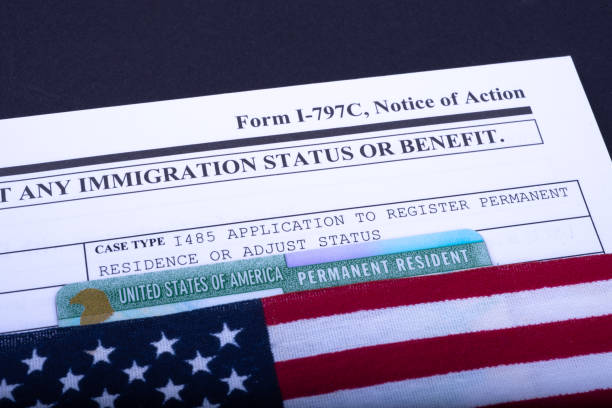 Once you submit your immigration petition or application to the United States Citizenship and Immigration Services (USCIS), they can respond in several ways. Of course, the most desirable option is for USCIS to approve your request in the first round. However, if that is not the case, it’s essential to understand the alternative outcomes that you might get.
Once you submit your immigration petition or application to the United States Citizenship and Immigration Services (USCIS), they can respond in several ways. Of course, the most desirable option is for USCIS to approve your request in the first round. However, if that is not the case, it’s essential to understand the alternative outcomes that you might get.
Before USCIS issues a decision denying the immigration benefit sought, USCIS can issue a notice called a Request for Evidence (RFE) or Notice of Intent to Deny (NOID). These are notices that no applicant hopes to receive, however, it is possible to overcome either of these roadblocks. Both notices serve a different purpose, but they are meant to alert you to deficiencies or critical issues with your immigration application.
Working with experienced immigration attorney gives you a better advantage at overcoming a possible USCIS denial. In this blog post, our legal team at Milovic Law Firm will answer the most frequently asked questions about the RFE and NOID notices.
What is a Request for Evidence?
 A request for evidence (RFE) is a USCIS notice alerting you to a lack of sufficient evidence to approve your application or petition. Your RFE should tell you what exactly you are missing so you can correct the issue. As the petitioner or applicant, you or your attorney must respond within the specified timeframe to this request for additional evidence.
A request for evidence (RFE) is a USCIS notice alerting you to a lack of sufficient evidence to approve your application or petition. Your RFE should tell you what exactly you are missing so you can correct the issue. As the petitioner or applicant, you or your attorney must respond within the specified timeframe to this request for additional evidence.
The RFE notice is a common tool USCIS uses to obtain additional documents or otherwise fill any gaps of missing information.
What is a Notice of Intent to Deny?
A Notice of Intent to Deny (NOID) is a notice that alerts you to critical issues that are serious enough for USCIS to intend to deny your application or petition. It requires a suitable response and may lead to denial if you cannot sufficiently address the matters specified in the NOID before the clock runs out.
Applicants have just 30 days to respond to a NOID before USCIS will formally deny your application. Your response to a NOID is possibly your last chance to prove that you are eligible for the benefits you are seeking. It’s important to act fast, so if you have received a NOID, you should contact an immigration lawyer as quickly as possible.
Difference Between RFE and NOID
 While both NOIDs and RFEs allow applicants to provide more evidence and information, there’s a big difference between the two. Think of an RFE as a reminder to include something you may have forgotten, while a NOID is a warning that a denial is coming your way if you are unable to present additional facts or evidence. A strong reply to a NOID may also require a legal argument, including applicable case law and statutes or regulation which support your facts.
While both NOIDs and RFEs allow applicants to provide more evidence and information, there’s a big difference between the two. Think of an RFE as a reminder to include something you may have forgotten, while a NOID is a warning that a denial is coming your way if you are unable to present additional facts or evidence. A strong reply to a NOID may also require a legal argument, including applicable case law and statutes or regulation which support your facts.
Both the RFE and NOID notice are to be taken seriously, but the latter certainly raises the stakes and is more worrisome. In any event, you should consult with your immigration lawyer for help if you receive either of these notices from the USCIS.
What are your options if you receive a NOID or an RFE?
You should avoid responding to a NOID or an RFE before consulting with an immigration lawyer. If you submit a partial or inadequate response, they may deny your application based on the insufficient evidence provided.
Many NOIDs and RFEs can be resolved with the help of an experienced immigration attorney. The faster you act, the more likely you are to overcome these hurdles. So, make sure to respond as quickly as possible—always before the specified deadline.
Top Immigration Attorneys in Phoenix, AZ
Receiving an RFE or a NOID can be incredibly stressful for, especially if family unity or your livelihood depends on obtaining the immigration benefit. Considering what’s at stake and the complex nature of immigration law, it’s important to work closely with a local Phoenix immigration lawyer who understands these types of USCIS notices.
Our skilled Phoenix immigration law firm has vast experience handling a wide variety of immigration cases, including overcoming issues involving NOIDs and RFEs. We are passionate about what we do and work diligently to secure the best possible outcome for our clients. So, what are you waiting for? Contact our legal team now for a free consultation.


